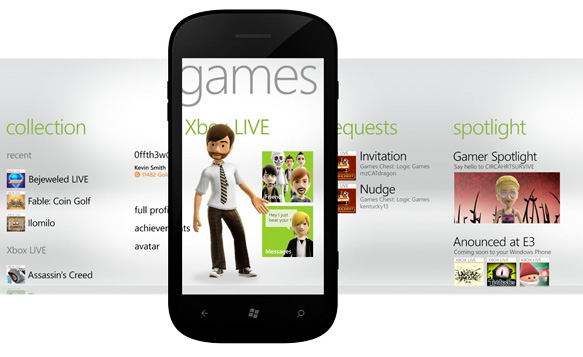Fuel campaign performance with laser-focused targeting
Nokias launch of it flagship WP8 handsets, the Lumia 920 and 820 was an exciting piece of news not just for the Windows Mobile (WP) platform but also for developers who are looking to expand their mobile app business beyond Apples iOS and Googles Android. WP7, despite the combined force of Microsoft and Nokia, could not make any serious inroads into the smartphone eco system and offer a strong 3rdalternative to Apple and Google. The result of which was that the WP platform never caught on with developers and consumers continued to struggle to find their favorite apps and games on the Windows Marketplace. For a while Microsoft and Nokia took the application eco system into their own hands, building their own version of popular apps for the WP7 Mobile platform and even went to the extent of incentivizing developers with monetary benefits to build apps for the platform. While this made a few developers happy, it didnt make much sense for the majority of developers who would rather spend their limited resources into developing for iOS and Android, which provides a much bigger and monetizable user base globally. It is unfortunate, for the WP platform does provide a refreshing approach to mobile interfaces and UI. So coming back, what is it about WP8 that got me so excited? Lets find out.
For starters, this is the first COMPLETE Windows for mobile. WP7 was always a stopgap OS before the true Windows experience on the mobile arrived. WP7 is based on the Windows CE desktop kernel, which looked and worked like Windows but was not as compatible. WP8 on the other hand, is the same Windows 8 OS that will run on desktops, laptops, and a host of other form factors that are associated with the Windows ecosystem. WP8 is just the version that has been optimized to run on mobile devices and tablets. So whatever works on your Windows 8 desktop, will potentially work on your WP8 mobile device as well! This is fantastic because now developers can play around with multiple form factors running Windows 8, including the desktop, which was always out of reach for native mobile developers until now. For developers, the other good news is that since all WP7 was written in .NET and Windows runs .NET, it means that all WP7 apps will be compatible with WP8 as well. Hurrah!
The other big win for WP8 and potentially the game changer is that since WP8 is essentially the same OS that will run on the desktops, it means that there will be absolutely no segmentation of developers as web / desktop and mobile developers. You just become a Windows developer, as your application will potentially run both on the desktop as well as mobile form factors. Native app developers will have access to all low level and high level APIs, which work both on desktops and mobile. It will provide more functionality and better hardware optimization for developers to create a more seamless experience for their native apps. In a lot of use cases, specially gaming and productivity apps, the transition between desktop and mobile will be so seamless that consumers will not really care which is the primary device they will use to create or play. The app will have the same functionalities and behave the same on all form factors.

And remember, developers for the Windows desktop platform have been around since the 1990s and with WP8, they can now build mobile apps as well, albeit with modifications for smaller screen sizes and complete touch input on the mobile. With this single move, WP8 has overnight acquired the biggest set of market ready developers on the planet and nobody had to shell out any bribes.
The problem with multiple aspect ratios is that it makes it extremely irritating both as a consumer who see skewed aspect ratio apps and developers who have to modify their apps to ensure compatibility with as many screen sizes as possible. Ask any Android developer. WP8 is relatively easier to program for, as it supports three resolutions, including the new 1280 x 768 and 1280 x 720. In addition, WP8 also supports vector graphics and developers should find it relatively easy to build apps, which scale with the screen, be it a desktop or a mobile.

Although the Xbox Live service was present with WP7 as well, I expect the platform to really shine with WP8. Now that the desktop and mobile experiences have been unified, it means game developers can fully exploit this inter compatibility. Imagine starting a game on your Xbox360 at home in the morning, continuing where you left off on your WP8 mobile / tablet on your way to work and finishing the game on your Win 8 office desktop. Seamless! To summarize, WP8 might potentially be the best thing that has happened to mobile since Apple revolutionized the way we look at mobile ecosystems with the iPhone + iOS. However, it remains to be seen how successful Nokia and other OEM partners are in increasing the penetration of the WP platform. So while PC sales are not expected to grow drastically with the release of Windows 8, tablets and mobile form factors are expected to power most of the growth whatsoever. So if you are a mobile developer, it might be time for you to relook at your WP8 strategy, as your playing field just increased by 1000X. Time to STARTyour WP business?
Register to our blog updates newsletter to receive the latest content in your inbox.